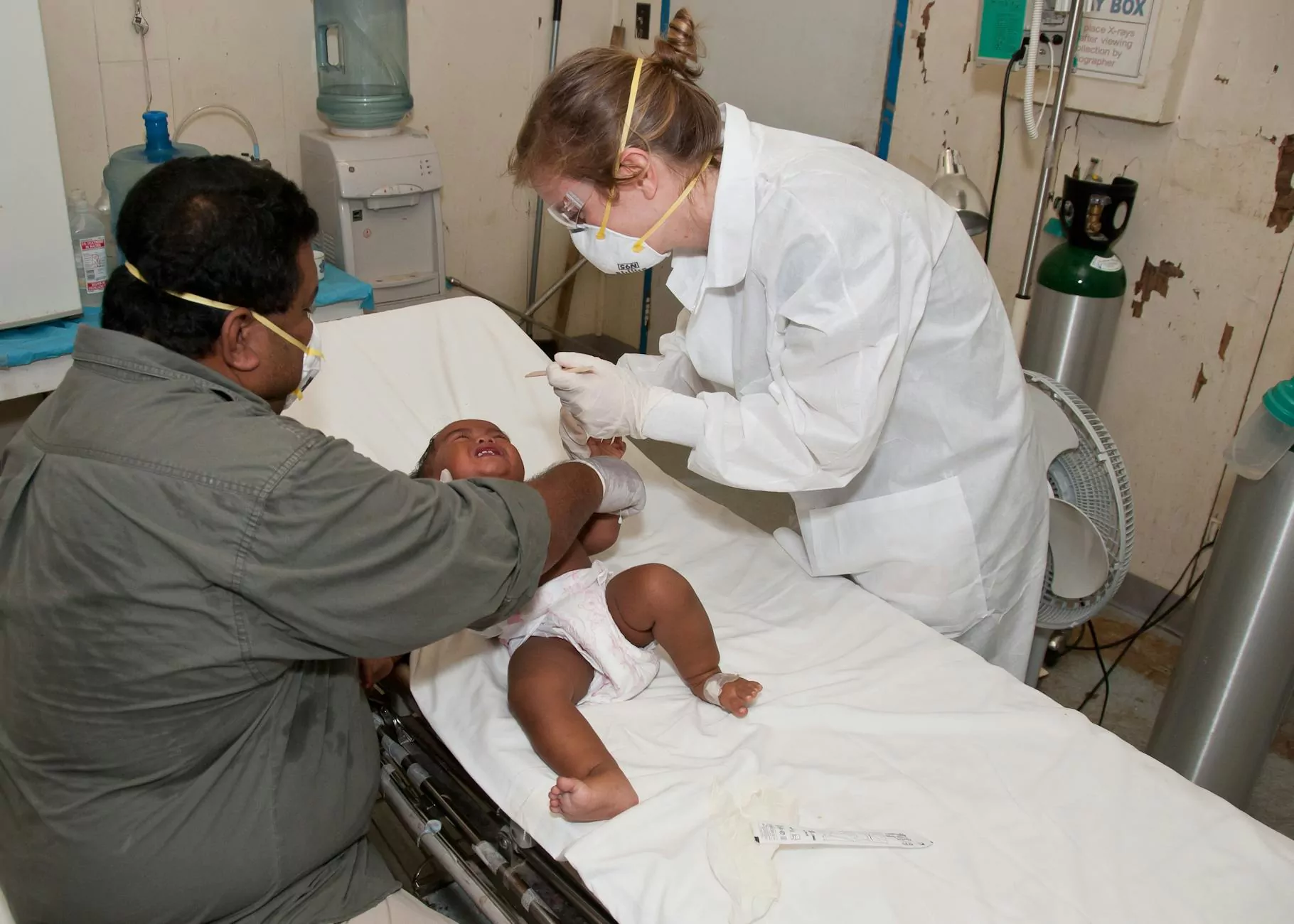The Vital Role of Lung Doctors in Health and Medical Care

Every aspect of our health is interconnected, with the respiratory system playing a crucial role in our overall wellbeing. Among the specialists who ensure our lungs are healthy are lung doctors, also known as pulmonologists. These highly trained medical professionals focus on diagnosing and treating diseases of the lungs and respiratory tract. This article delves into the essential contributions of lung doctors within the broader sphere of health and medical care, particularly in the realms of sports medicine and physical therapy.
Understanding Lung Doctors
Lung doctors specialize in respiratory health and are essential in managing conditions such as asthma, chronic obstructive pulmonary disease (COPD), pneumonia, and lung cancer. Their diverse expertise allows them to assist patients in achieving better respiratory health, which is vital not just for daily living but also for active lifestyles, including sports and physical activities.
The Education and Training of Lung Doctors
To become a lung doctor, a practitioner must go through rigorous training:
- Medical Degree: Completion of a medical school program is the first step.
- Residency: This is usually a three-year program focused on internal medicine.
- Fellowship: Following the residency, an additional two to three years is spent specializing in pulmonary medicine.
- Board Certification: Most lung doctors become board certified by passing a rigorous examination.
This extensive training equips lung doctors with the knowledge and skills to diagnose and treat complex respiratory conditions effectively.
The Importance of Lung Health
Healthy lungs are vital for maintaining overall health. They supply oxygen to our body and remove carbon dioxide, serving as a crucial component of respiratory function. Disorders or diseases affecting lung health can lead to serious health conditions. Here are some reasons why lung health is paramount:
- Oxygen Supply: Our bodies require oxygen for cellular respiration and energy production.
- Physical Performance: Athletes and active individuals depend on efficient lung function for peak performance.
- Overall Health: Poor respiratory health can lead to increased susceptibility to infections and chronic diseases.
Thus, lung doctors play an integral role in promoting lung health and, by extension, overall health.
Conditions Treated by Lung Doctors
Below is a list of common respiratory conditions that lung doctors frequently manage:
- Asthma: A chronic condition characterized by inflamed airways and difficulty breathing.
- Chronic Obstructive Pulmonary Disease (COPD): A progressive disease that obstructs airflow and makes it hard to breathe.
- Pneumonia: An infection that inflames the air sacs in one or both lungs, which may fill with fluid.
- Interstitial Lung Disease: A group of disorders that cause progressive scarring of lung tissue.
- Sleep Apnea: A disorder causing interrupted breathing during sleep.
- Lung Cancer: A severe condition characterized by uncontrolled cell growth in lung tissues.
The expertise provided by lung doctors is critical in diagnosing these problems early, leading to better management and treatment outcomes.
Collaboration with Physical Therapy and Sports Medicine
The relationship between lung doctors and other health professionals, like physical therapists and sports medicine specialists, is vital in improving patients' respiratory health, especially for athletes and individuals engaging in high-performance sports. Here’s how they collaborate:
Optimizing Breathing Techniques
Physical therapists often work alongside lung doctors to develop breathing exercises tailored to patients' needs. These exercises help:
- Enhance lung capacity and improve oxygen exchange.
- Reduce shortness of breath during physical activities.
- Facilitate recovery from respiratory illnesses.
Injury Prevention and Recovery
Athletes with existing respiratory conditions must maintain a robust pulmonary health profile. Lung doctors can assess an athlete’s readiness to compete and recommend modifications in training to avoid exacerbating any underlying conditions. Their insights are crucial for:
- Identifying potential risks associated with strenuous activities.
- Advising on appropriate environmental conditions for training sessions (e.g., avoiding high pollution days).
- Guiding personalized recovery plans post-illness or injury.
Future Directions in Lung Health Management
The landscape of pulmonary healthcare is continually evolving, with research and technology paving the way for enhanced patient care:
- Telemedicine: With advancements in digital health, patients can receive consultations and follow-up care remotely, making access to lung doctors easier.
- Personalized Medicine: Genetic and molecular research is leading to more individualized treatment plans, improving outcomes for patients with lung diseases.
- Innovative Therapies: Ongoing research is yielding new medications and therapy options aimed at managing chronic respiratory disorders.
These advancements emphasize the importance of staying informed and engaged with lung health and the role of lung doctors in guiding patients through these innovations.
Conclusion: The Integral Role of Lung Doctors
In summary, lung doctors are essential healthcare providers who ensure the health of one of our most critical organs. Their expertise not only aids those suffering from respiratory diseases but also significantly benefits athletes and individuals committed to maintaining an active lifestyle. Through their collaboration with physical therapists and sports medicine experts, they contribute to a comprehensive approach to health and wellbeing.
If you or someone you know is experiencing respiratory issues or wishes to enhance their lung health, seeking the advice of a qualified lung doctor can provide the necessary support and guidance. Their role is indispensable in promoting a healthier future for all, enhancing both health and physical performance.









